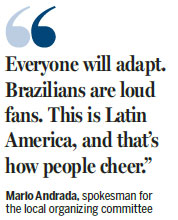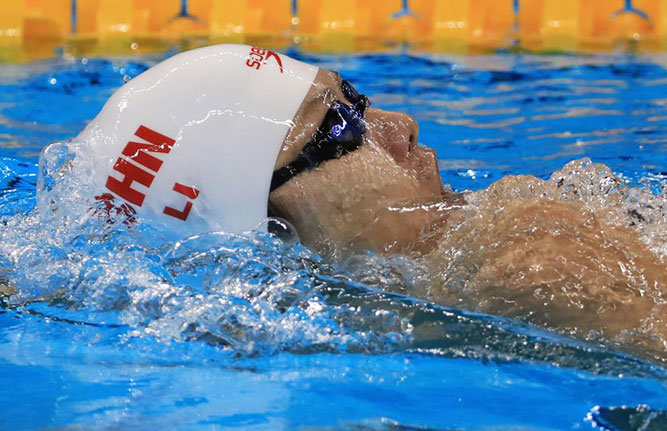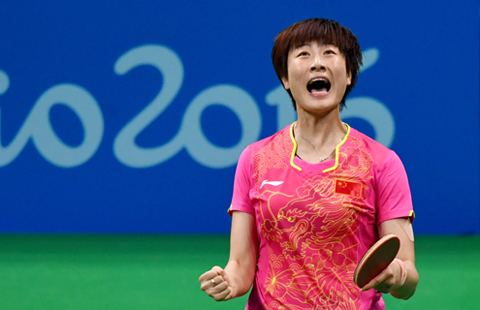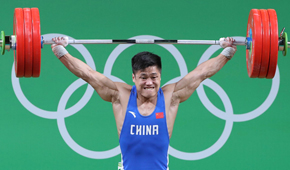Rampant fan-demonium
By Associated Press (China Daily) Updated: 2016-08-12 08:10Some foreigners unnerved as boisterous Brazilians follow their own set of rules
Forget the traffic snarls and unexpected rainstorms. Foreign spectators and athletes at the Olympics have something else to get used to.
It can be quite disconcerting to hear the boisterous booing and thunderous taunts of Brazilian fans who are not satisfied to just sit back and watch the action unfold.
Feeling lost in translation? You're not alone.
"I can't hear my coach. Calm down," Brazilian fencer Ghislain Perrier, who was raised in France, said in rough Portuguese during a match as rowdy spectators chanted "Uh! You're gonna die! Uh! You're gonna die!" in the direction of his opponent.
In fencing, "en grade" is usually the loudest call you hear during competition, which requires such intense concentration that etiquette typically permits applause only between bouts.
But local fans prefer to cheer against Brazilian rivals with the war cry "vai morrer," (you're gonna die) commonly bellowed at mixed martial arts events. The same chant could be heard this week at judo and boxing.
In Brazil, spectators follow their own set of rules: Always support the underdog. Boo referees, umpires and judges whenever a decision goes against the home team. And no dig is too outrageous.
Consider Friday's opening ceremony. Locals booed interim Brazilian President Michel Temer, gave South American rival Argentina a mixed welcome and cheered countries with seemingly little connection to Brazil. One of them was Switzerland.
Renato Santos, a Rio businessman, said: "It is because many of our politicians have secret bank accounts there. How come people abroad didn't get that joke?"
While hardly an underdog, China has garnered support from many Brazilian fans at these Games.
But one of the most popular chants when Chinese athletes are competing is "yakisoba" - a Japanese noodle dish that is popular in Brazil. Others have made reference to a local Chinese chain restaurant, trying to show their support by shouting "China In Box."
Business consultant Rafael Salies, a Brazilian who has taken part in the mockery, says the fans do not mean to be offensive. "This is Rio, and people find it funny," he said.
The darling of Olympic boos so far has been United States women's soccer goalkeeper Hope Solo.
Before the Olympics, Solo had many fans in soccer-crazy Brazil, but they felt disappointed after she used social media to spread alarm over the Zika virus. Now, every time she takes a goal kick, unforgiving spectators roar "zee-kah!"
Mario Andrada, a spokesman for the local organizing committee, said: "Everyone will adapt. Brazilians are loud fans. This is Latin America, and that's how people cheer."
South American athletes barely flinch at the cheers and jeers, but some other athletes have taken to retorts. Italian tennis player Fabio Fognini shouted "Louder, louder" when he and Andreas Seppi beat Brazilians Andre Sa and Thomaz Bellucci in doubles.
Others have enjoyed it all. "You can feel it in the water, it is just so loud," said US swimmer Michael Phelps. "It is great energy."
Top-seeded tennis player Novak Djokovic went even further. "This crowd makes me feel Brazilian, that's why I am crying. I didn't want to disappoint them," the world No 1 said after losing to Argentina's Juan Martin del Potro.
Adversaries aren't the only target of Brazilian fans. The host nation's soccer players endured endless booing during their first match and, in the second, the local crowd even began rooting for opponent Iraq.










